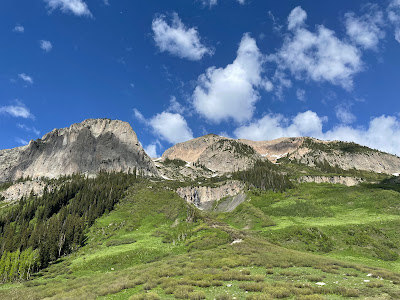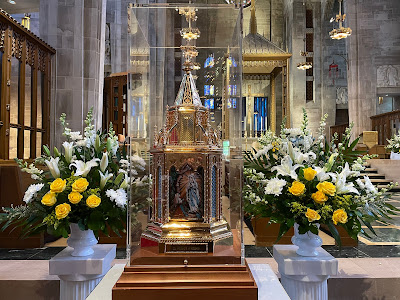For the past week, I was on vacation with a group of young adults in the mountains of western Colorado. Among the 15 of us were four priests, a seminarian, several married couples, at least one person discerning religious life, and a handful of single people. We spent the days hiking and biking and the evenings cooking, telling stories, singing songs, and of course, lifting our hearts and voices to the Lord in praise. As we started out on one of our hikes, I asked a couple of the people in the group what they thought I should preach about this Sunday, on the Solemnity of the Lord’s Body and Blood. The conversation lasted several miles and left me with much to think about. In fact, it was so insightful that I titled that hike on Strava as “Afternoon Homily Writing.” As we talked about the Eucharist, we kept coming back to the question, “Why does the Eucharist matter?” Obviously, we believe that it does, but we were searching for the right way of expressing why it matters for ...





-1.jpg)

